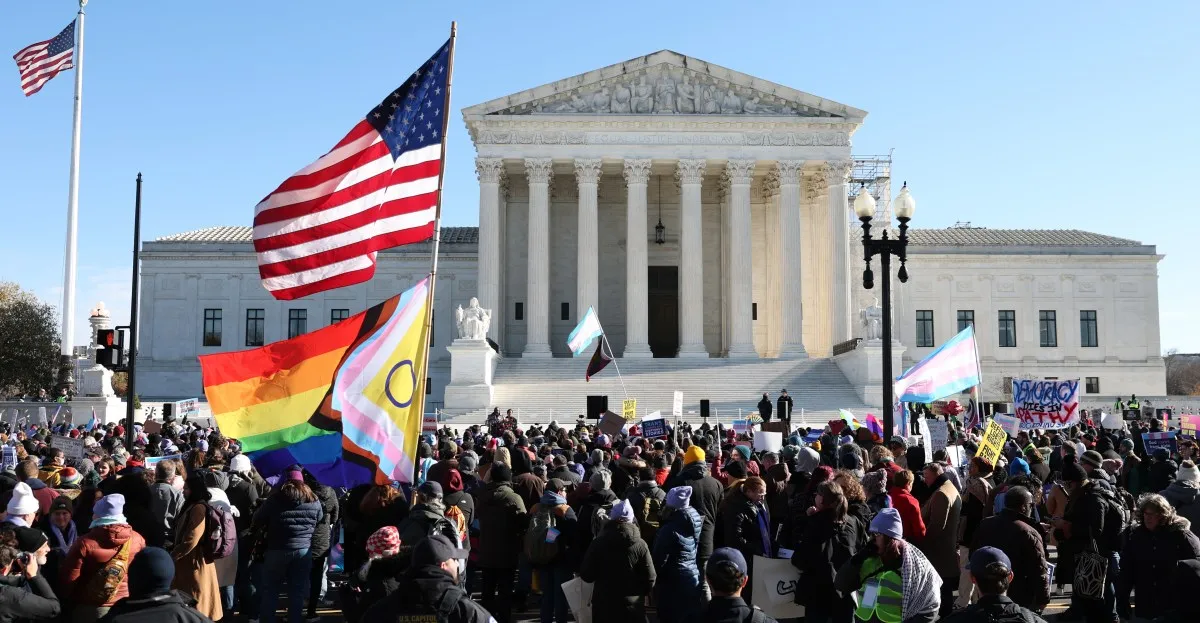
The U.S. Supreme Court announced on Monday that it will review the case of Chiles v. Salazar, examining a significant challenge to a Colorado law that prohibits most mental health professionals from offering conversion therapy. This controversial practice aims to alter the sexual orientation or gender identity of LGBTQ individuals, particularly those under the age of 18. Critics have labeled conversion therapy as a discredited method of counseling, arguing that it attempts to force individuals to conform to cisgender and heterosexual norms.
The Colorado law in question explicitly forbids licensed therapists from engaging in “any practice or treatment … that attempts or purports to change an individual’s sexual orientation or gender identity.” However, there is a notable exemption for counselors who are “engaged in the practice of religious ministry.” This legal framework aims to protect LGBTQ youth from harmful practices that lack scientific backing and have been discredited by numerous reputable health organizations.
According to a dissenting opinion by Justice Samuel Alito in 2023, over 20 states, along with the District of Columbia, have enacted laws that restrict the practice of conversion therapy. A federal appeals court, which upheld Washington State’s law against this practice, highlighted that “every major medical, psychiatric, psychological, and professional mental health organization opposes the use of conversion therapy.” For instance, the American Psychological Association has stated that conversion therapy “puts individuals at a significant risk of harm” and is ineffective in altering a person’s gender identity or sexual orientation.
The Chiles case introduces complex questions regarding First Amendment rights. At the crux of the issue is whether limiting what therapists can discuss with their clients infringes upon constitutional protections of free speech. Some states argue that the First Amendment does not shield licensed professionals from accountability for malpractice, even if the misconduct involves speech. For instance, a lawyer cannot assure a client that they can commit a crime without facing professional repercussions.
Much of the legal debate surrounding Chiles v. Salazar will likely hinge on the Supreme Court’s ruling in NIFLA v. Becerra (2018). This decision established that “speech is not unprotected merely because it is uttered by ‘professionals,’” which could lend support to advocates of conversion therapy. However, the court also affirmed that “states may regulate professional conduct, even though that conduct incidentally involves speech.” This duality complicates how the Supreme Court might approach the current case.
Predicting how the Supreme Court will rule is inherently uncertain, especially given the current 6-3 Republican majority, which has not shown strong support for the rights of LGBTQ youth. In a related case heard last December, the Court appeared inclined to uphold state bans on various medical treatments for transgender minors. Should the Court decide to strike down Colorado’s law, it faces the challenge of doing so without undermining states' authority to regulate malpractice.
If the Supreme Court rules against Colorado's law, it must consider the implications for state oversight of licensed professionals. The question arises: if states cannot prohibit therapists from engaging in widely rejected practices, what prevents them from regulating practitioners who endorse harmful treatments, such as those related to COVID-19 misinformation or vaccines? Ultimately, Colorado's strategy to defend its law may focus on illustrating the intolerable consequences that could arise from removing states' ability to regulate malpractice in therapeutic settings.